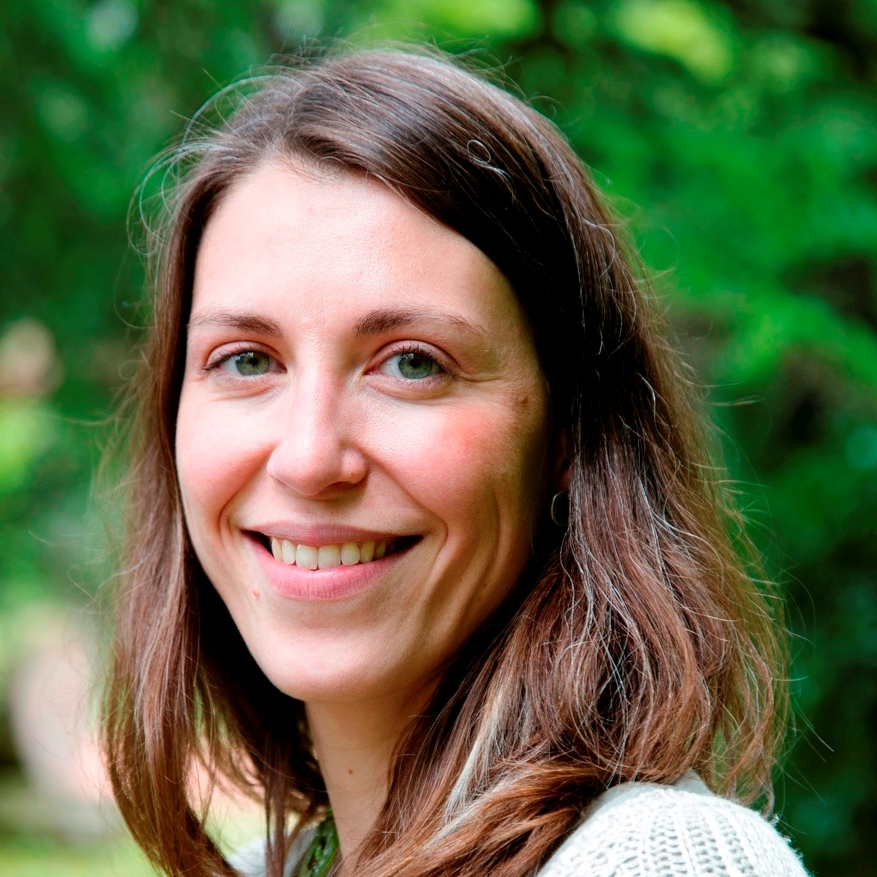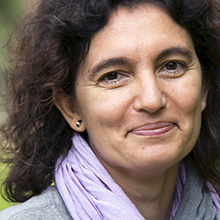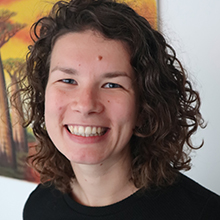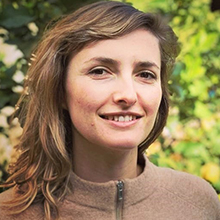INMA - Environment and Childhood Project

- Duration
- 2004-Present
- Coordinator
- Mònica Guxens (ISGlobal)
- Website
- http://www.proyectoinma.org
The physical, social and intellectual development of children from conception to late adolescence requires a protected environment and protective of health. The increase in diseases is related to unhealthy environments. Prenatal and early life exposures, including diet, are associated with infant health and human development, and predispose later effects in adults.
The INMA Project - Children and the Environment is a research project that aims to study the role of the most important environmental pollutants in the air, water and diet during pregnancy and the beginning of life, and their effects on child growth and development.
Objectives
The INMA Project has 3 general objectives:
- Describe the degree of individual prenatal exposures to environmental pollutants and the internal doses of these pollutants during pregnancy, at birth and during childhood, in Spain.
- To assess the impact of both prenatal and postnatal exposure to various environmental pollutants on the growth, health and development of children, both in the fetal stages and throughout their lives.
- Evaluate how some genetic and nutritional factors can modify the effects of environmental pollutants on child growth.
INMA-Sabadell Cohort
The INMA-Sabadell Cohort is located in the city of Sabadell where all the women who had an ultrasound of their first trimester of pregnancy at the CAP II San Felix, between July 2004 and July 2006, were invited to participate in the INMA Project. A total of 657 women and 622 babies were included. The women were followed up in each trimester of pregnancy, until the moment of delivery, at the Hospital de Sabadell (Corporación Sanitaria Parc Taulí) which covers the entire population of Sabadell and acts as a specialized consultation and referral hospital for the birth.
Between May 2007 and July 2007, an additional round of directly recruiting pregnant women was carried out when they were going to give birth at the Hospital de Sabadell. In this second phase, a total of 120 more women were included in the project.
Over the years, this group of boys and girls from the city of Sabadell has been evaluated approximately every 2 years, thanks to the predisposition of their families: that is, at 6 and 14 months, at 2, 4, 7, 9, and 11 years old. In the year 2021, we carried out the visit of the 14-16 years, and we hope of counting on their important and selfless participation in the future.
More Information
- Project website: www.proyectoinma.org
- Twitter account: @ProyectoINMA
- Conversation on Twitter: #ProyectoINMA
Our Team
INMA Project Director
-
 Mònica Guxens ICREA Research Professor
Mònica Guxens ICREA Research Professor
ISGlobal Team
-
 Martine Vrijheid Research Professor and Head of the Environment and Health over the Lifecourse Programme
Martine Vrijheid Research Professor and Head of the Environment and Health over the Lifecourse Programme -
 Sofía Aguilar Predoctoral researcher
Sofía Aguilar Predoctoral researcher -
Albert Ambròs
-
Anne Claire Binter
-
 MARIONA BUSTAMANTE Staff Scientist
MARIONA BUSTAMANTE Staff Scientist -
Lourdes Cirugeda Data Manager INMA
Other projects
See Past ProjectsMCC-Spain
Population based multicasecontrol study on common tumours in Spain
HELIX
Novel tools for integrating early-life environmental exposures and child health across Europe
EGG/EAGLE
Early Genetics Growth/Early Genetics and Lifecourse Epidemiology
PACE
Pregnancy and Childhood Epigenetics
LIFECYCLE
Early-life stressors and LifeCycle health
OMEGA-NET
Network on the Coordination and Harmonisation of European Occupational Cohorts
BiSC (Barcelona Life Study Cohort)
HARMONIC
Health effects of cArdiac fluoRoscopy and mOdern radIotherapy in paediatriCs
Mobilise-D
Connecting digital mobility assessment to clinical outcomes for regulatory and clinical endorsement
EARLY-ADAPT
Signs of Early Adaptation to Climate Change
COVICAT
Cohorte Covid-19 en Cataluña
ATHLETE
Advancing Tools for Human Early Lifecourse Exposome Research and Translation
CONTENT
Cohort of COVID-19 in Spain: social dynamics, mental health and inequalities
EUCAN-Connect
A federated FAIR platform enabling large-scale analysis of high-value cohort data connecting Europe and Canada in personalized health
OBERON
An integrative strategy of testing systems for identification of EDs related to metabolic disorders
EXPANSE
EXposome Powered tools for healthy living in urbAN SEttings
AURORA 2021
Actionable eUropean ROadmap for early-life health Risk Assessment of micro- and nanoplastics
ONES
Fine Particle Matter, Fetal Growth, and Neurodevelopment: Examining Critical Windows of Susceptibility
AIR-NB
Pre-natal exposure to urban AIR pollution and pre- and post-Natal Brain development
El impacto de la exposición al metaboloma de esteroides materno-fetales en el crecimiento infantil y los resultados neurológicos (IGRO)
Project Code: PI21/01269
NutinBrain
The role of seafood and nut consumption on human neurodevelopment from pregnancy to adolescence
ALTER - Contaminación del aire, microbiota intestinal y neurodesarrollo en los primeros 24 meses de vida
Project Code: PI21/01278
Alimentación S2: por una dieta saludable y sostenible
Estudio sobre la exposición a nano y microplásticos a través del agua de consumo de Barcelona
¿Es mejor consumir el agua de grifo si queremos reducir la exposición a nano/micropláticos?
UrbanKids
Urban and social environment and childhood obesity – a natural moving2health experiment
Urban Health Citizen Lab
Urban planning, environment and health
Characterizing Oral Exposure to Nanoplastics and Microplastics
Characterization of Oral NMP Exposure
iGenCO
In-Depth Genomics and Cross-Omics Analysis for Undiagnosed Rare Diseases on a User-Friendly Collaborative Platform
5G expOsure, causaL effects, and rIsk perception through citizen engAgemenT
GOLIAT
CityExposomeCat
An Exposome Approach to Urban Health: Individualized Environmental Exposure Assessment in an Adults Population Cohort Study (GCAT)
TwinAir
Digital Twins Enabled Indoor Air Quality Management for Healthy Living
Subclinical Infections in Children and Long Term Health Effects
Infection acquisition in early life and health outcomes in childhood - MARATO TV3
UBDPOLICY
The Urban Burden of Disease Estimation for POLICY Making
Exposición prenatal a sustancias poli y perfluoradas en agua de consumo y neurodesarrollo en el inicio de la vida
Project Code: PI20/00829
Base genética materna y fetal de la función placentaria
Project Code: PI20/01116
TOLIFE
Combining Artificial Intelligence and smart sensing TOward better management and improved quality of LIFE in chronic obstructive pulmonary disease
BWater
Drinking Water in Barcelona: Sustainability and Health Impact Assessment
CUPID
intoDBP
Innovative Tools to Control Organic Matter and Disinfection Byproducts in Drinking Water
FINDOOR
FTIR spectroscopy for real-time detection of bacterial outbreaks and the rapid identification of pathogenic serotypes, relapsing infections and antibiotic resistance
OccRF-Health
Occupational exposure to radiofrequency electromagnetic fields: From exposure assessment to study of health in workers and their offspring
EPHOR
Exposome Project for Health and Occupational Research
EXPONIT
Analysing and studying how night shift work affects workers' circadian rhythms and health
IHEN
International Human Exposome Network
El microbioma intestinal y la disrupción circadiana
Un estudio epidemiológico molecular sobre enfermedades cardiometabólicas y salud mental
B-Triage
Una prueba en el punto de atención para la estratificación del riesgo de los pacientes febriles basada en los niveles de sTREM-1
e-QuoL
e-health tools to promote Equality in Quality of Life for childhood to young adulthood cancer patients, survivors and their families
AM-MENTAL
What happens with your mental health when your supervisor is an algorithm?
















